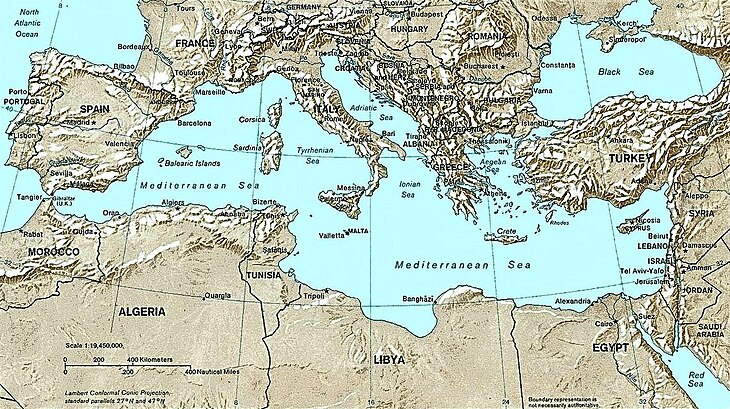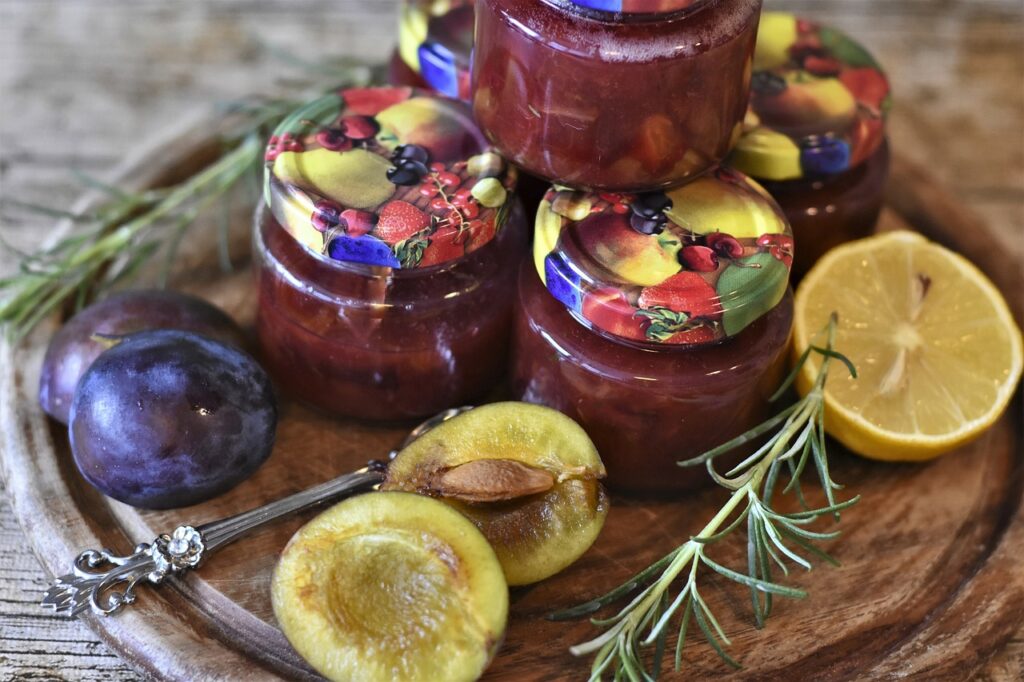There is this expression once common in cultured discourse, ‘the law of the Medes and Persians’, used to describe what is immutable: like the Pole Star by which mariners steer their course. A similar tautology heard during sports interviews would be, ‘It is what it is.’ There’s no changing this truth, say the sports stars, especially in acknowledging their misfortunes.
We made our acquaintance with this immutable law when it awaited us at table on board a tidy ocean liner, the RMS Media, in a harbor sometimes mocked by wags as ‘Ali Baba and the Forty Thieves’ for its colorful reputation: the port city properly known as Beirut, Lebanon. Hawsers creaking with the swells, gulls crying, the smell of salt air and fish greeted us as we climbed up the gangplank to claim our cabins. All was in readiness for a meander through the eastern Mediterranean.

The opening of the Suez Canal in 1869 has contributed to that traffic in modern
times. The home of the Medes in antiquity lies just off the right hand edge of the map,
NE of modern day Syria. photo credit: wikimedia commons
We cast off on a summer evening, turning south past the coastal lights of Sidon and Tyre whose Phoenician founders plowed these seas like no others. And hours later, the twinkling lights of Haifa marked a prominence, Mt. Carmel, whose caves have opened a book on the pre-history of humankind. Thereafter, the throb of Media’s muscle lulled as to sleep as the ship bore us south past long-ago scenes of biblical drama, on to the mouth of the Suez canal, bringing us at dawn to the great fan of the Nile delta.
At breakfast we made acquaintance with a bowl of creditable plum jam. Spread on fresh bread it gave credence to the ship-board rumor that Katharine Hepburn had once lounged on Media’s deckchairs. A local pilot arrived to helm the ship into our first port of call: the epic city of Alexandria, now bathed in brilliant Saturday sunshine. From its sweeping corniche, we imagined Pharos, lighthouse of the Ptolemies, now tumbled into the sea by earthquake and tsunami. And lost under the harbor waves lay the remnants of antiquity’s greatest library.

Besides plums, these include figs, oranges (marmalade) and apricots. What
distinguishes the best of these recipes is a minimizing of sugar to preserve the
natural zest of fruit flavor. photo credit: pixabay commons
At evening the ship eased away from its berth as we settled at the supper tables, there to find waiting – well, that friendly bowl of plum preserves. But we gave it hardly a second thought as we sailed into the night, into the arms of the Mediterranean, its depths and shipwreck sagas slipping away far beneath us, secrets safe and sealed.
As the Media laid down its daily wake across the open sea, a truth began to come into focus. While the galley served up a variety of dishes, one element held pride of place at each meal: the bowl of plum jam. Past the isle of Crete, we met with plum jam. Into the Aegean Sea and through the islands of Homer’s Odyssey – that make no mention of any ordeal, haunt or curse of plum jam – that bowl of purple condiment reigned.
Like Odysseus taken captive by the cyclops, we had been trapped at sea by a tyrannical bowl of plum jam. There were knowing smirks about why Katharine Hepburn had fled her cabin. Others wondered what orchard of plums in the Caucasus had been savagely denuded in order to stock this ship with jam. Some muttered with grim humor that a stowaway had crept on board the day the ship was baptized as ‘Media’, imposing henceforth ‘the law of the Medes (and the Persians)’, the law of plum jam.
Release came in the form of a seraphic vision. As Media rounded a headland at evening, into view came the flood-lit majesty of the Acropolis, Athens’ crowning glory. The iron grip of plum jam was broken. The vaunted law of the Medes was abrogated.
I confess that this ship-voyage trauma has turned me into something of a helpless jam snob. At any one time there are six or more varieties of jam in our refrigerator door. Utter decadence. Yes, sometimes even pomegranate, guava and rozelle. Kyrie eleison. But never anything approaching plum jam. I’m guessing that hillside orchard in the Caucasus needs a rest.



That plum jam recipe made its way across the Atlantic with immigrants to Argentina and then found its way onto our dinner table. There it became somewhat of a favorite due to its tartness and lack of any knowledge of this story which you tell.:)
Your recent post pinged an old nerve, JP. In ’69, five friends descended on Edinburgh to study theology. The initial week in a B and B turned into a six-month encampment. Our host, Polish refugee Mr. Krautwald, each morning served us tea, an egg, and all the toast we could manage. Tiring after four weeks of the daily orange marmalade, one of us suggested he try something different. Thus began five months of, you guessed it, plum jam!